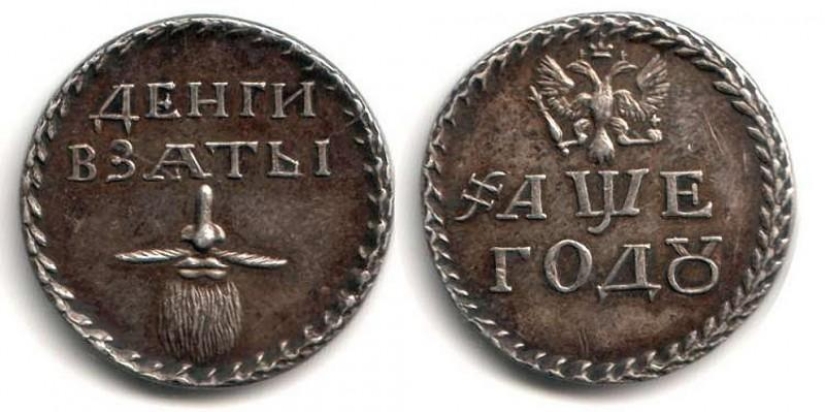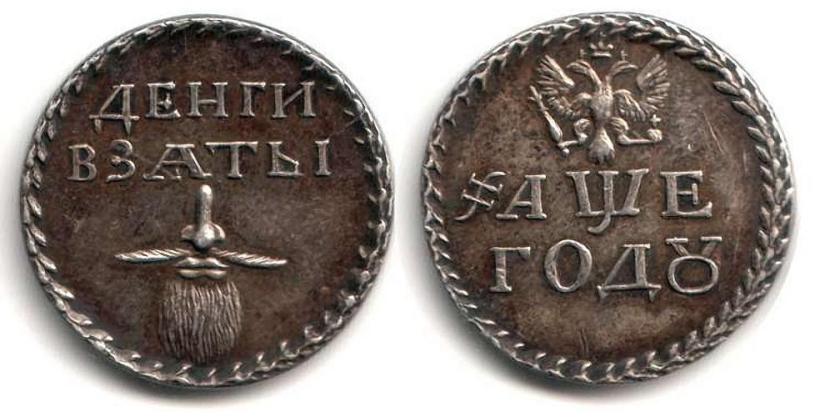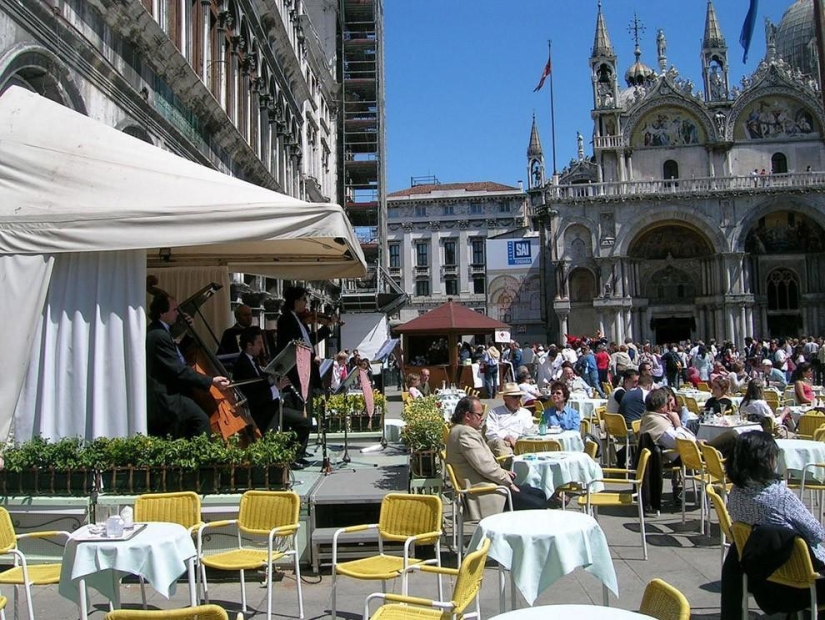The most absurd taxes in the world
Categories: History
By Pictolic https://pictolic.com/article/the-most-absurd-taxes-in-the-world1.htmlDid you know that the famous Latin phrase "money does not smell", pronounced by the Roman Emperor Vespasian, is directly related to taxes? Or rather, the tax on public toilets, introduced to quickly replenish the state treasury after the last civil war. What taxes, sometimes imposed by wise and sometimes just greedy rulers, have not been seen in history. We recall the most striking examples of absurd taxes in different countries of the world, from the Middle Ages to the present day.


The tax on life is just a dream of the tax authorities of all countries, realized in the XIV century in England. Every person was obliged to replenish the state treasury only for the fact that he was alive. However, such a brilliant idea failed miserably – a grandiose riot quickly put an end to tax lawlessness.

In 1689, Peter the Great introduced a tax on beards. I must say, he approached this very thoroughly. Servants, merchants, officials – each individual category of citizens had a certain tax rate. After paying for the "non-conformity to fashion", you could leave the precious beard. Those who did not have the money to pay the tax were sent to hard labor to work off their fine.

The ear tax in Tibet was temporarily introduced in the 1920s to provide for military needs. Although the fact of this tax is mentioned repeatedly in various sources, more detailed information about it is quite contradictory. So, according to Chinese researchers, households paid one liang of silver from each ear of a person or a pet. Western researchers reported that people who did not pay the tax on their ears were punished by cutting off their ears. And no tax was paid for ears that had already been cut off.

At the beginning of the twentieth century, in the Altai Territory, there was a tax on washing clothes in an ice hole-20 kopecks were charged for this for the winter. They also took 2 kopecks for each trip on the water with a rocker arm.

The window tax was in effect in the kingdoms of England and Scotland during the 17th and 18th centuries. This was another attempt to fill the treasury, which caused the total rejection of windows from poor people – they were forced to lay the window openings with bricks. And more affluent Britons, not wanting to spoil the appearance of their homes, the missing windows on them just finished painting. The tax lasted for a surprisingly long time and was abolished on July 24, 1851.

Not so long ago, in 1993, a shadow tax was introduced in Venice. Now all the owners of establishments whose awnings and awnings cast a shadow on the city lands have to pay a contribution to the state treasury.

From 1784 to 1811, there was a tax on hats in Great Britain, which brought a good income to the state. After all, every self-respecting gentleman in this country wore a hat. During production, special signs were applied to the hats, indicating that the tax was paid. Heavy fines were levied on tailors who failed to pay the tax. But those who forged tax signs were executed.

In the XVI (according to some versions – in the XVIII) century in the German city of Württemberg, a tax on sparrows was introduced. It was believed that birds interfere with the population to live in peace. The owner of each house was required to destroy a dozen sparrows, for which he received 6 kreutzers. If a person could not provide the required number of unfortunate birds, he had to pay the state twice as much. This tax marked the beginning of the underground trade in dead sparrows, which must have flourished in those days.

The cowardice tax (also known as the exemption tax) was a special tax imposed on people who did not want to fight for the king, which was considered cowardice. This tax was introduced in England during the reign of King Henry I (1100-1135) and was initially relatively low, but King John (John) Landless raised it by 300 percent and began to remove it from all knights even in those years when there were no wars. This played a significant role in the emergence of the Magna Carta. The cowardice tax lasted for about 300 years and was then replaced by other ways of replenishing the treasury at the expense of troops.

A fitting conclusion to our list is the agricultural tax on cow farting, which was almost introduced in New Zealand in 2003 to reach agreement with the Kyoto Protocol. The tax was going to tax the release of methane by cows, which in New Zealand produce more than 50% of greenhouse gas emissions. In the end, either because of numerous protests, or simply because of the triumph of common sense, the Labor government abandoned its idea of taxing farting cows.
Keywords: History | Money | Taxes
Post News ArticleRecent articles

Photos can tell stories that are hard to put into words. Manuela Federl, a talented photographer, captured life in a Roma ghetto in ...

Koteyki always do what they please – and it's no secret. They can sleep where they want and do what they please, when you do ...
Related articles

Stockings are one of the most beloved weapons of seduction by women. But this seemingly simple thing. it has a lot of puzzles. For ...

1960‑ies, which brought us the beatniks and hippies, hipsters and opponents of the war, and the fashion was different the same ...

Each person has his own quirks and the higher his status, the more opportunities there are to realize these quirks. If some guys ...

The paintings of the American hyperrealist artist Seth Armstrong offer the viewer not only photographic authenticity, but also a ...